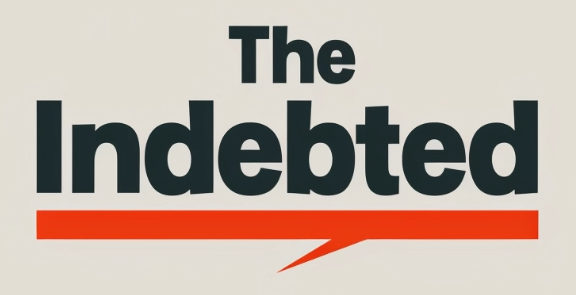If you’re struggling with debt, settling your accounts for less than what you owe may seem like a good option. But before you start negotiating with creditors, it’s important to understand the potential impact on your credit score. Debt settlement can have a negative effect on your credit score, but there are steps you can take to minimize the damage.
First, it’s important to understand how debt settlement works. Debt settlement involves negotiating with creditors to pay less than the full amount owed. While this can help you get out of debt faster and for less money, it can also have a negative impact on your credit score. Late payments and delinquent accounts can stay on your credit report for up to seven years, and settling an account instead of paying it in full is seen as negative because the creditor agreed to take a loss in accepting less than what was owed.
However, there are ways to protect your credit score during debt settlement. One option is to work with a reputable debt settlement company that can help you negotiate with creditors and minimize the damage to your credit score. Another option is to continue making payments on your accounts while you negotiate a settlement, which can help prevent late payments and delinquent accounts from hurting your credit. By taking steps to protect your credit score during debt settlement, you can minimize the long-term impact on your financial health.
Understanding Debt Settlement
When it comes to managing debt, there are a variety of options available to consumers. One such option is debt settlement. Debt settlement is a process in which a consumer negotiates with their creditors to pay off their debt for less than the full amount owed. While debt settlement can be an effective way to reduce debt, it is important to understand the process and how it can affect your credit score.
The Debt Settlement Process
The debt settlement process typically involves hiring a debt settlement company to negotiate with your creditors on your behalf. These companies will work with your creditors to settle your debt for less than the full amount owed. In some cases, the debt settlement company may also work with you to set up a payment plan to pay off the settled amount over time.
It is important to note that debt settlement companies charge a fee for their services. This fee can be a percentage of the total amount of debt owed or a percentage of the amount saved through the settlement process.
Types of Debt Affected
Debt settlement is typically used for unsecured debt such as credit card debt, medical bills, and personal loans. Unsecured debt is debt that is not backed by collateral. This means that if you fail to pay your debts, the creditor cannot seize any of your assets.
Secured debt, on the other hand, is debt that is backed by collateral. This includes things like mortgages and auto loans. If you fail to pay your secured debts, the creditor has the right to seize the collateral.
It is important to understand that debt settlement can have a negative impact on your credit score. While settling your debts can help you get out of debt faster, it can also result in delinquent payments that can damage your credit score. Additionally, settling an account for less than the full amount owed is seen as negative because the creditor agreed to take a loss in accepting less than what was owed.
Overall, debt settlement can be a useful tool for managing debt, but it is important to understand the process and the potential impact it can have on your credit score.
Impact on Credit Score
Debt settlement can have a significant impact on your credit score and credit history. In general, settling a debt for less than the full amount owed is seen as a negative event by creditors and credit bureaus. Here are some ways debt settlement can affect your credit score:
How Settlement Affects Credit History
When you settle a debt, it will generally be reported to the credit bureaus as “settled” or “settled for less than the full amount.” This notation will remain on your credit report for up to seven years, and it can have a negative impact on your credit score. According to Experian, this notation can cause your credit score to drop by as much as 100 points.
Credit Score Factors and Debt Settlement
Several factors determine your credit score, including payment history, credit utilization, and credit history length. Debt settlement can negatively impact each of these factors.
- Payment History: When you settle a debt, it usually means you’ve missed several payments, which can negatively impact your payment history. Late payments can remain on your credit report for up to seven years, even after the debt is settled.
- Credit Utilization: Debt settlement can also impact your credit utilization ratio. This ratio is the amount of credit you’re using compared to your total credit limit. When you settle a debt, the creditor may close the account, which reduces your total credit limit. This can increase your credit utilization ratio, which can negatively impact your credit score.
- Credit History Length: Settling a debt can also impact your credit history length. When you settle a debt, the account will be listed as “settled” on your credit report, which can reduce the length of your credit history. This can negatively impact your credit score, as credit history length is an important factor in determining your credit score.
In summary, debt settlement can have a negative impact on your credit score and credit history. It’s important to understand the potential consequences of debt settlement before deciding to pursue this option.
Navigating Financial Options
When facing a significant amount of debt, it’s essential to explore all available financial options. Two common options are debt consolidation and debt settlement. While these options may sound similar, they have distinct differences that can significantly impact your credit score.
Debt Consolidation vs. Settlement
Debt consolidation is the process of combining multiple debts into a single loan with a lower interest rate. This option may be suitable for individuals who have a high amount of debt but still have a good credit score. Debt consolidation can help simplify your finances and make it easier to manage your debt. However, it does not reduce the amount of debt you owe.
Debt settlement, on the other hand, is the process of negotiating with creditors to pay off your debt for less than what you owe. While this option can help you get out of debt faster, it can also have a negative impact on your credit score. Creditors may report your account as “settled” or “paid for less than the full amount,” which can stay on your credit report for up to seven years.
Considering Bankruptcy
If you are struggling to manage your debt and are unable to make payments, bankruptcy may be an option to consider. There are two types of bankruptcy that individuals typically file: Chapter 7 and Chapter 13.
Chapter 7 bankruptcy involves liquidating your assets to pay off your debts. This option may be suitable for individuals who have a significant amount of unsecured debt, such as credit card debt or medical bills.
Chapter 13 bankruptcy involves creating a repayment plan to pay off your debts over a period of three to five years. This option may be suitable for individuals who have a steady income but are struggling to make payments.
It’s important to note that bankruptcy can have a significant impact on your credit score and should only be considered as a last resort. Before making any decisions, it’s essential to consult with a financial advisor or credit counselor to explore all available options.
Strategies to Protect Your Credit
As you navigate the debt settlement process, it’s important to keep your credit score in mind. Here are some strategies to protect your credit during debt settlement:
Dealing with Creditors and Collectors
When you’re in debt, it’s easy to feel overwhelmed by creditors and collectors. However, it’s important to remember that you have rights. Under the Fair Debt Collection Practices Act, collectors are prohibited from using abusive, deceptive, or unfair practices to collect a debt. If you feel that a creditor or collector is violating your rights, you can file a complaint with the Consumer Financial Protection Bureau.
Smart Budgeting and Repayment Plans
One of the most important things you can do to protect your credit during debt settlement is to create a budget and stick to it. This will help you stay on top of your bills and monthly payments, which is crucial for maintaining a good credit score. If you’re struggling to create a budget, you may want to consider working with a credit counseling agency. These agencies can help you create a payment plan that works for your unique financial situation.
Another way to protect your credit during debt settlement is to focus on rebuilding your credit. This means making on-time payments and keeping your balances low. While it may take some time to rebuild your credit, it’s worth the effort. By focusing on smart budgeting and repayment plans, you can improve your cash flow and protect your credit score.
Remember, debt settlement can be a challenging process, but it’s important to stay focused on your goals. By working with creditors and collectors, creating a budget, and focusing on rebuilding your credit, you can protect your credit score and achieve financial stability.
Legal and Tax Considerations
When it comes to debt settlement, there are several legal and tax considerations that you should be aware of to protect your credit score and avoid any legal issues. In this section, I will discuss two important considerations: understanding the 1099-C form and avoiding scams and high fees.
Understanding the 1099-C Form
One of the most important legal considerations in debt settlement is the 1099-C form. This form is issued by creditors when they forgive or cancel a debt of $600 or more. The IRS considers this forgiven debt as taxable income, which means you will need to report it on your tax return. Failing to report the forgiven debt can result in penalties and fines from the IRS.
To avoid any issues with the 1099-C form, it’s important to keep track of all the debts that you settle and the amount forgiven. You should also consult with a tax professional to ensure that you report the forgiven debt correctly on your tax return.
Avoiding Scams and High Fees
Another important consideration when it comes to debt settlement is avoiding scams and high fees. There are many debt settlement companies that promise to settle your debts for a fraction of the amount owed, but these companies often charge high upfront fees and fail to deliver on their promises.
To avoid these scams, it’s important to do your research and choose a reputable debt settlement company. You can check with the Consumer Financial Protection Bureau to see if the company has any complaints against them. You should also be wary of any company that requires upfront fees before settling your debts.
In addition to avoiding scams, it’s important to understand the settlement date of your debts. The settlement date is the date when the creditor agrees to accept a lower amount to settle the debt. It’s important to negotiate a settlement date that is as close to the current date as possible, as this will minimize the impact on your credit score.
By understanding the 1099-C form and avoiding scams and high fees, you can protect your credit score during debt settlement and avoid any legal issues.





